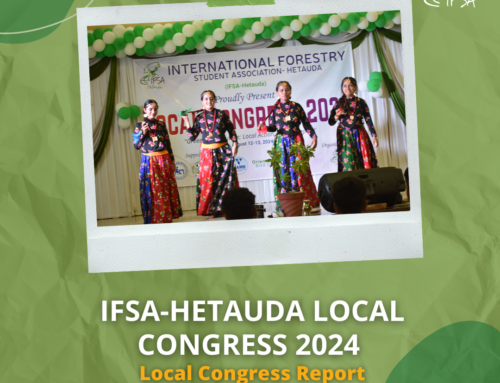Sharm El Scheikh, Egypt
by Frederik Buchholz

For the past three years I have been studying International Forest Ecosystem Management in Germany. Within the study program we often debated the development of sustainable forestry, the relationship of forests and socio-economic factors and the international conventions and strategies tackling the problem of forest destruction across borders.
Now at the COP 14 of the CBD I have for the first time in my life the possibility to understand international policy processes, gaining an understanding what lobbying means and experiencing structures and methods to include as many voices as possible into international debates. But beside these personal advantages I ask myself also what my role will be here. How can my flight from Germany to Egypt and the upcoming two weeks be more than a student’s adventure?
I want to take responsibility. And for me, this responsibility includes approaching policy makers and other relevant stakeholders, as well as creating an awareness and room for the positions of Indigenous People and Local Communities (IPLC´s) through online publications on the questions:
What is Environmental Justice and why should policy and other measures not solely focus on distributional and participatory issues, but more importantly on the recognition of different ways of living and interacting with the environment? Why is cultural diversity a necessary foundation of saving biodiversity? Why do we always speak about the Anthropocene and the way we humans are destroying the planet, disregarding that the underlying cause is the economic model of capitalism trying to gain continuously surplus through opening up new possibilities to access cheap nature, cheap labour, cheap food and cheap energy? What is the meaning of the COP 14 CBD when most of the Aichi Targets won´t be achieved by 2020? How can we allocate more resources and attention to IPLC´s which possess and manage most of the earth biodiversity sustainably?
We need to ask ourselves who is speaking, who is heard, how is a problem framed and which policy possibilities and measures are enabled through this! And we need to direct our efforts towards shifting power to IPLC´s and other underrepresented groups. We need to enable more room for different epistemologies and human-nature relationships enabling the 2050 vision of the CBD: Living in harmony with nature!



